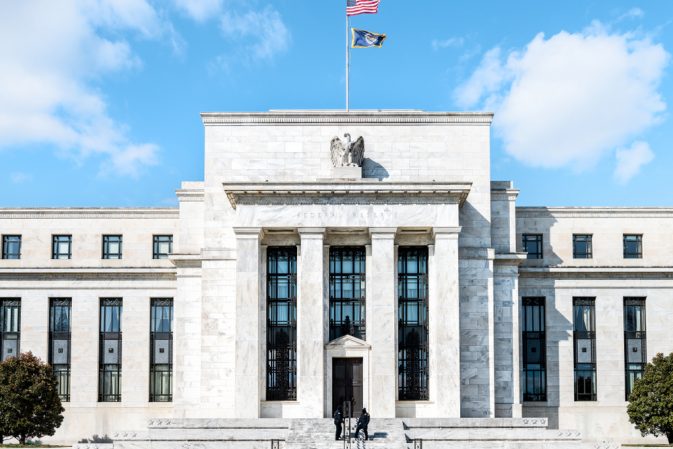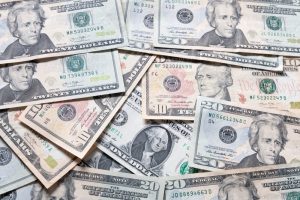Federal Reserve must not raise interest rates for good reasons

Rocky financial markets are just the latest reason the Federal Reserve should hold off on raising interest rates at its meeting this week. So far this month, the Dow Jones Industrial Average and S&P 500 Index have each fallen by nearly 7 percent. All three major stock indices are flat for the year as markets have negatively reacted to an overly aggressive Federal Reserve. This pullback in the markets impacts the retirement, savings, and college accounts held by ordinary Americans. It makes them feel poorer and reduces their propensity to spend, invest, and donate.
The price of assets and its economic impact is known as the wealth effect. People feel wealthier when the value of their assets are rising and are therefore more likely to stimulate the economy through their purchases. This is a significant factor the Federal Reserve draws on when deciding whether to raise, lower, or maintain interest rates. But the diminished wealth effect is just one of several reasons why the Federal Reserve should not raise rates this week. Perhaps the biggest justification is that doing so threatens one of the best economies and labor markets in a generation.
Over the past six months, our booming economy has grown by nearly 4 percent. For the first time since 2005, annual growth is on pace to exceed 3 percent, which is about 50 percent higher than the rate under President Obama. The unemployment rate has not been this low since 1969, when men were drafted for Vietnam. Minorities enjoy the best job climate on record, and wages continue to grow at a clip.
This economy and labor market are the results of smart public policy. President Trump and the outgoing Republican majority repealed some of the worst aspects of the Dodd Frank Act, allowing small business owners to access credit more easily. They also passed tax cuts that include a deduction of 20 percent for small business job creators. Deregulation at the executive branch level has also unleashed entrepreneurial spirits.
Rising interest rates threaten this climate because they increase the cost of starting businesses, which drives economic and labor market growth. By increasing the cost of debt, businesses are less likely to invest in new factories, product lines, or store fronts. Existing projects and the ones that move forward in this higher interest rate environment are burdened with increased debt servicing expenses that will reduce employee wages.
Rather than putting the brakes on this long overdue growth by continuing to raise interest rates, the Federal Reserve should give the economy some more room to run. The public should not mistake delaying rate hikes as a sign of a weakening economy as some pundits argue. This is the most prudent decision that can be made to prevent an artificial slowdown.
This story might be different if inflation were rising or nearing dangerous levels. Yet core inflation, the favored measure of the Federal Reserve, is below its 2 percent target and falling. Even the Consumer Price Index, which includes volatile food and fuel prices, has fallen from its summer highs with oil prices. Given that core inflation over the last six years has averaged well below 2 percent, the economy could even some withstand short bouts of inflation above 2 percent before raising interest rates.
Federal Reserve Chairman Jerome Powell offered Americans hope that the central bank may hold off on raising rates when he announced last month that rates “remain just below” the neutral target, neither accelerating nor impeding growth of the economy. Other statements suggest the Federal Reserve may move to a “data dependent” strategy, shifting away from its predictable quarterly 25 basis point increases, at its meeting this week.
What most observers fail to recognize is that interest rates may actually already be at neutral considering that the Federal Reserve is offloading the $4.5 trillion balance sheet it acquired following the Great Recession. This additional monetary tightening should also be reconsidered depending on upcoming indicators. Small businesses and their employees are only now getting their turn to enjoy the low interest rates that have so far mostly benefited wealthy asset holders. The Federal Reserve should not take this away from them, especially during the week before Christmas.
Alfredo Ortiz is president and chief executive of the Job Creators Network.





